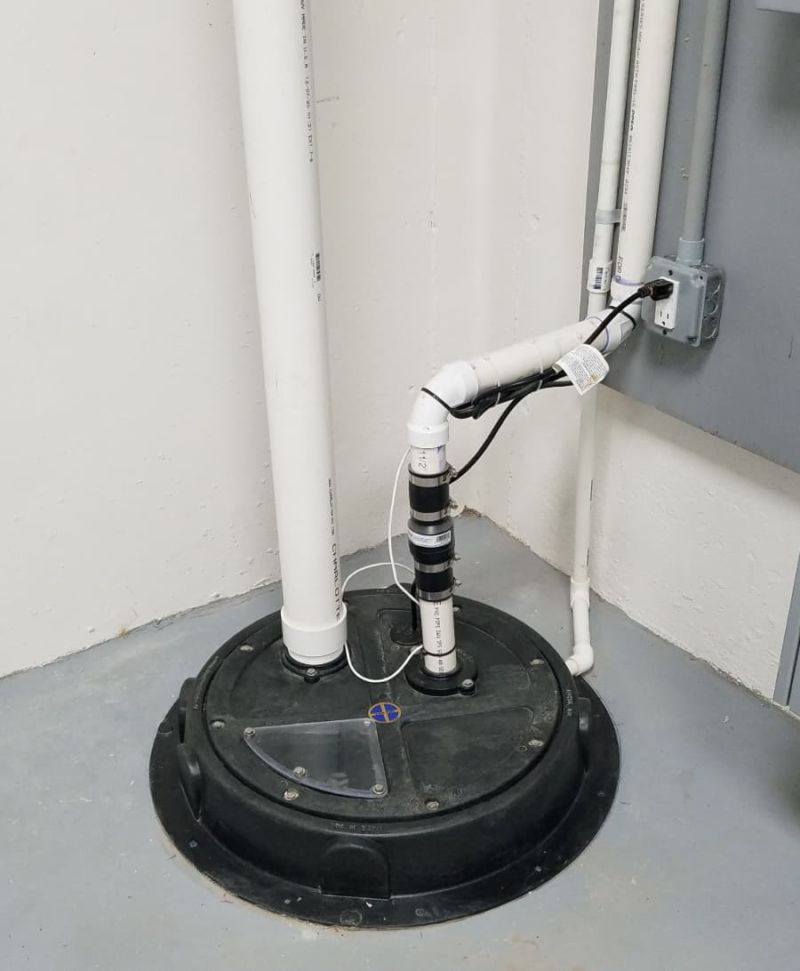Invented by a U.S. Navy engineer in 1946, sump pumps were originally designed to prevent water from accumulating around and damaging vital ship parts. Now, they’re regarded as an essential piece of preventative equipment for homeowners everywhere, especially for those who live in flood-prone areas or are concerned about their hydronic equipment leaking. Here, The Coop reviews the top questions you should be asking about your sump pump to help ensure your plumbing system is operating properly, efficiently, and reliably.
Is my sump pump installed in the right location?
Sump pumps are typically installed in homes that have basements or crawlspaces in an effort to prevent the consequences of water damage, such as:
- Rotting wood floors
- Cracking concrete
- Developing mold and mildew from sopping-wet carpets
- Flooding and water buildup
Sump pumps should be installed at the lowest point of your basement floor or crawlspace to minimize water damage, protect your foundation, and control moisture levels. Because this equipment reroutes unwanted water back to the land, the sump pump also needs to be installed underground, with its top edge flush with your floor. If you have any concerns about where or how your sump pump was installed, have a professional like the ones at Cooper Mechanical take a look.
Should I test my sump pump’s performance on a regular basis?
Sump pumps are intended to protect your home in an emergency, such as flooding from a big storm or after an unexpected water heater leak. Therefore, it’s smart to ensure your sump pump is working properly year-round and in optimal condition. Cooper Mechanical recommends periodically testing your sump pump with the following method:
- Slowly pour roughly five gallons of water into the sump pump, stopping when its float rises.
- At this point, your sump pump should turn on and begin pumping all of the water out of the area.
- When the pumping is complete, your sump pump should turn off automatically.
- To confirm that your sump pump works, repeat this test.
Whenever you test your sump pump, also double-check that your exterior drainpipe flows away from your home. It should also be clear of dirt and debris.
I found an issue – should I repair or replace my sump pump?
The average sump pump lifespan is about 10 years. Depending on the level of usage, your specific sump pump may have a longer or shorter lifespan. Some telltale signs your sump pump should be replaced include:
- Becoming increasingly noisy
- Acting erratically
- Malfunctioning or not working at all
The issue may point to a feasible repair, but only a qualified plumber can make that distinction. If you encounter a problem of any kind with your sump pump, the knowledgeable and dedicated team at Cooper Mechanical is here to help. With over 45 years of experience serving Doylestown, upper-to-mid Bucks County, Ottsville, and the surrounding areas of Pennsylvania and New Jersey, we’ll assess your sump pump and recommend the next steps you should take. Should you experience a heating, cooling, or plumbing emergency, we also offer 24/7 support. For more information about ensuring proper sump pump functionality, contact us today.






